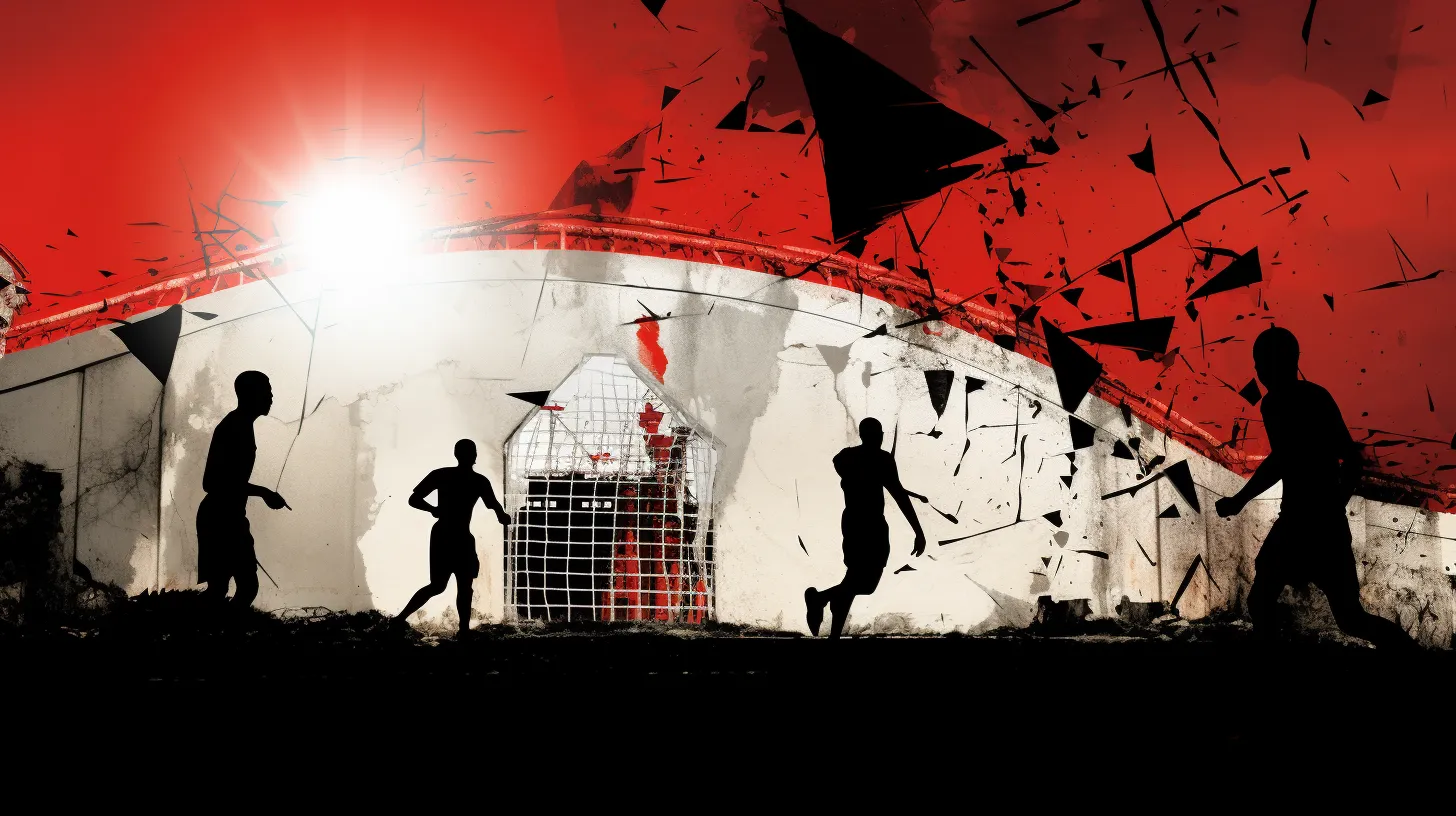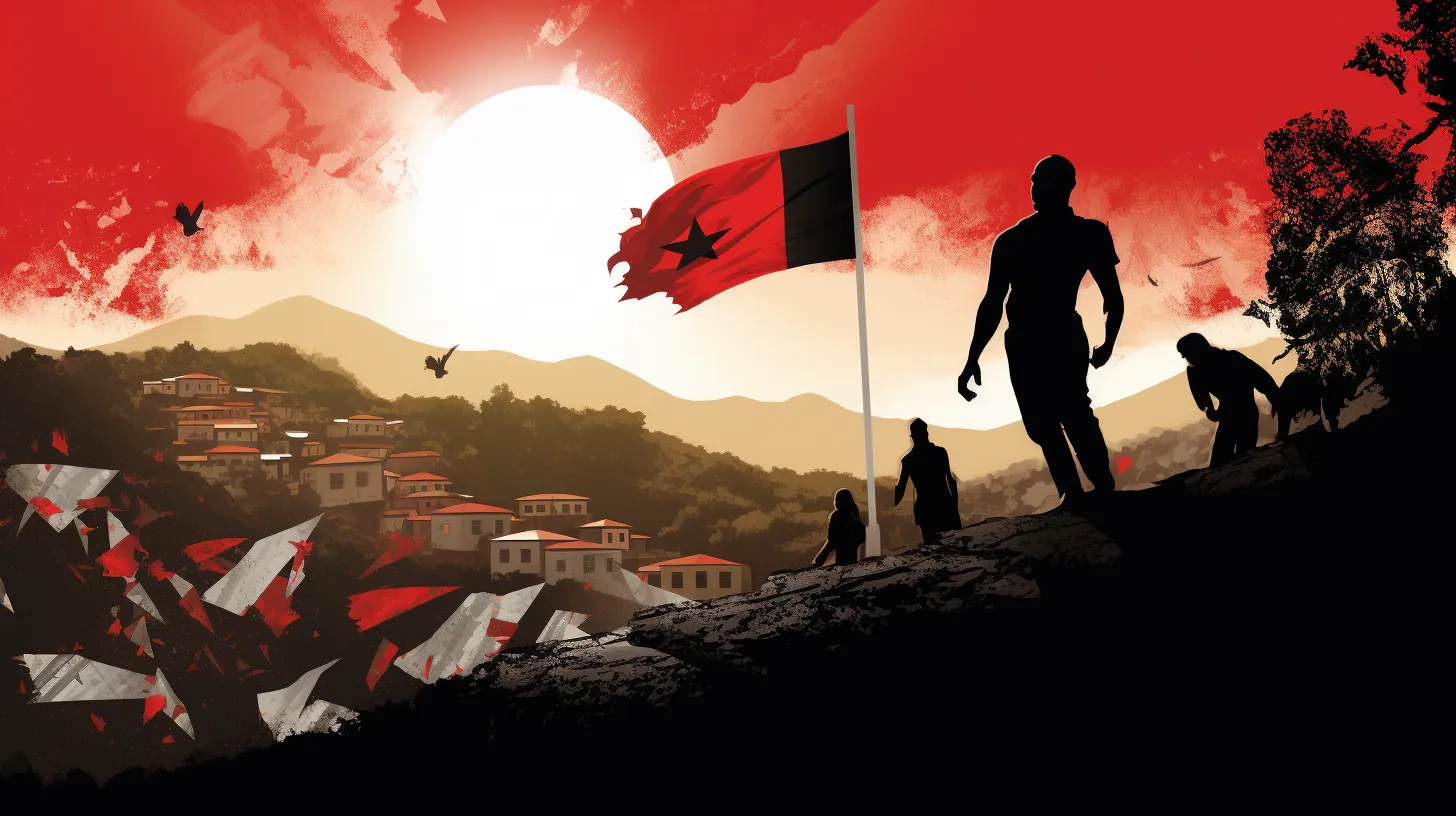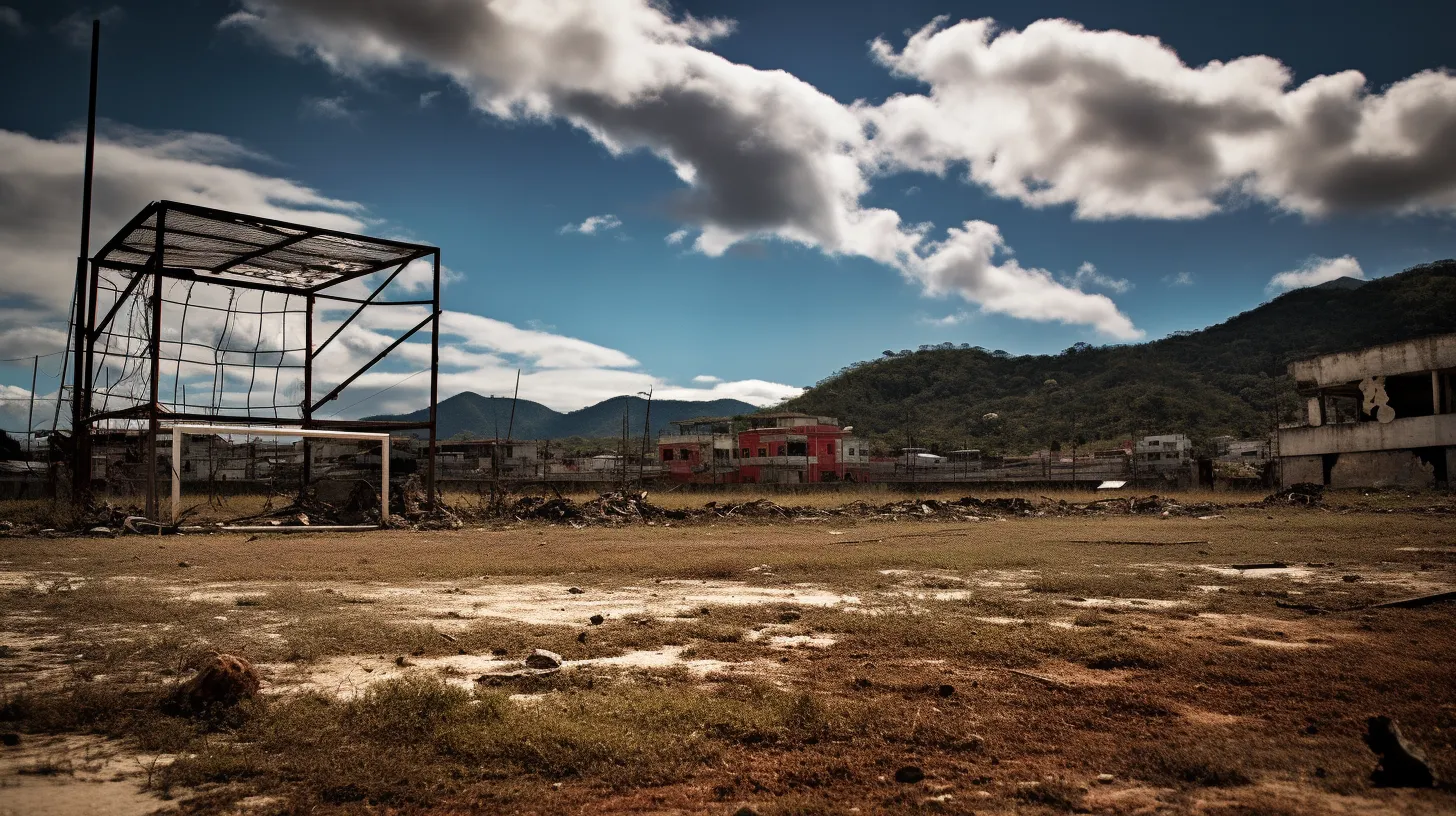Like Icarus flying too close to the sun, Trinidad and Tobago’s World Cup dreams nearly melted away under the heat of a cash crisis. The nation’s bid for glory on the soccer field was caught in a net of financial woes, with the specter of corruption looming large.
Jack Warner, once the face of Caribbean football, found himself at the center of the storm. His alleged misdeeds cast doubt on the bid’s integrity and raised questions about the future of the sport in the twin-island nation.
This retrospective glances back at the turmoil that rocked Trinidad’s quest, highlighting the precarious balance between ambition and the stark limits set by economic realities. It’s a tale of what happens when the purse strings tighten and the dreams of a nation hang in the balance.
The Bid’s Financial Hurdles

The financial hurdles facing Trinidad and Tobago’s World Cup bid became insurmountable following Jack Warner’s departure and the subsequent withdrawal of promised government funds.
As the former FIFA vice president and a pivotal figure in the country’s football scene, Warner’s resignation amid a cloud of FIFA corruption allegations sent shockwaves through the Trinidad and Tobago Football Federation (TTFF). Without his financial backing, the TTFF faced a severe cash crisis, jeopardizing their ability to compete effectively in World Cup qualifying matches.
The promised support from the Trinidadian government, which was supposed to sustain the team’s campaign, failed to materialize. The national team found itself unable to fund even basic preparations, including warm-up matches and the payment of their head coach’s wages.
This dire situation casts a shadow over their upcoming match against Bermuda, threatening to give their opponents an undue advantage.
These financial difficulties dimmed Trinidad and Tobago’s aspirations of shining on the international stage. The FIFA corruption scandal, with its ties to Warner, only compounded the difficulties, leaving the TTFF in an emergency state and scrambling to secure alternative funding sources for their World Cup qualifying journey.
Warner’s Controversial Role

While Trinidad and Tobago’s World Cup bid was already faltering due to financial strains, Jack Warner’s controversial role and subsequent resignation from FIFA exacerbated the crisis.
The former FIFA vice president had been the chief financier for Trinidad’s campaign, but his departure following a bribery scandal plunged the endeavor into deeper turmoil. Warner’s actions, particularly the cash-for-votes scandal linked to the Bermuda Football Association’s exposure, cast a long shadow over Trinidad and Tobago’s football.
The Trinidad and Tobago Football Federation (TTFF), while acknowledging Warner’s past assistance, faced a daunting task of distancing themselves from the scandal.
Oliver Camps, president of the TTFF, denied that Warner’s fall from grace was the sole cause of the financial chaos but couldn’t ignore the impact of Warner’s alleged corruption.
The accusations, including soliciting bribes in exchange for votes for England’s 2018 World Cup bid and personal financial gain through ticket resales, attracted the attention of the Department of Justice.
Warner’s controversial role not only impaired Trinidad and Tobago’s World Cup bid but also damaged the country’s football reputation internationally, leaving a stain on the sporting community that would take significant effort to clean.
Corruption Allegations Surface

Uncovering corruption allegations marked a turning point in Trinidad and Tobago’s World Cup bid, as investigations revealed a web of financial misdeeds linked to Jack Warner.
The former FIFA vice president and special advisor for Trinidad’s campaign faced intense scrutiny after Chuck Blazer, a former colleague, confessed to the FBI about their long-standing corrupt practices.
As details emerged, it became clear that Warner had allegedly received bribes to influence his vote in the FIFA presidential elections. These corruption charges shook the football world, leading to a broader examination of FIFA’s governance.
Warner’s actions, which seemed to prioritize personal gain over the sport’s integrity, prompted FIFA’s ethics committee to take decisive action.
The committee’s investigation found substantial evidence that Warner had exploited his position and solicited funds under the guise of promoting football in Trinidad and Tobago. His resignation and the subsequent lifetime ban from all football-related activities reflected the seriousness of the allegations.
Warner’s fall from grace not only undermined the Trini World Cup bid but also highlighted the endemic issue of corruption within the highest echelons of international football governance.
Impacts on Trinidad’s Dream

Jack Warner’s fall from grace not only cast a shadow over Trinidad and Tobago’s World Cup aspirations but also brought to light the fragility of their dream to participate on football’s biggest stage. The nation’s football association grappled with a debilitating cash crisis that threatened to derail their qualifying campaign.
As FIFA members, Trinidad and Tobago’s presence at world cups is a source of immense pride, and the prospect of qualifying again became increasingly precarious amid financial turmoil.
The absence of crucial warm-up matches, due to the association’s inability to fund them, compromised the team’s preparation. Moreover, the head coach’s wages hung in the balance, casting doubt over the squad’s leadership and stability.
Without a president like Warner at the helm, who, despite his flawed tenure, was a significant figure in securing resources, the association’s struggles intensified.
Frustratingly, the government’s pledged support failed to materialize, leaving the team’s World Cup campaign in jeopardy. As they faced their opening preliminary qualifier against Bermuda, the financial crisis loomed large, threatening to shatter Trinidad and Tobago’s dream of competing amongst the world’s elite football nations.
Aftermath of the Scandal

The scandal’s fallout left Trinidad and Tobago’s football federation scrambling to rebuild trust and secure the necessary funds to sustain their World Cup campaign.
The allegations against Jack Warner, including those involving his son, had tarnished the federation’s reputation. It was a tumultuous time, with FIFA executives, including then-president Sepp Blatter, under scrutiny for widespread corruption.
In the wake of the crisis, executive committee members faced the daunting task of navigating the financial uncertainty. Prime Minister Kamla Persad-Bissessar’s government, which had initially pledged support, was now in a position to reassess its involvement in funding the national team, given the severity of the allegations.
The TTFF’s appeals for financial assistance took on a new urgency as they aimed to keep their World Cup dreams alive. Yet the shadow of the scandal loomed large, casting doubt on the prospects of securing adequate support.
This period of instability would eventually become a defining chapter in Trinidad and Tobago’s football history, a stark reminder of the effects of corruption on the sport’s integrity and the hopes of a nation.

